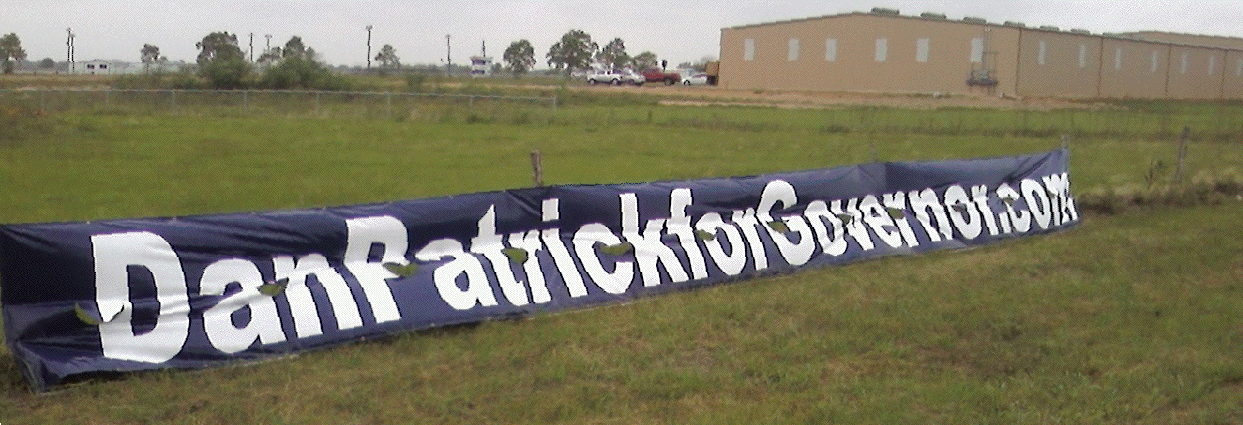This week, pollsters dropped the equivalent of Fat Man and Little Boy on the blogosphere, which exploded accordingly. With their remaining energy, bloggers also were talking about money, the Presidential race and Mother's Day. And there's more.
* * * * *
Poll Position
Walker Report relays the official release by Rasmussen Reports about their poll showing Democrat Rick Noriega within four points of incumbent Sen. John Cornyn. And here's the subsequent DailyKos poll with similar results.
"I think the poll is credible," says BurkaBlog. And Greg's Opinion is that the drop in Cornyn's numbers could be the result of John McCain being the presumptive GOP nominee. Greg also wonders if Cornyn will run some television during the summer.
"This is a PARTY ID poll and it's clear that whatever advantage the R's had in the past has evaporated under the heat of rank incompetence," says McBlogger. "The old wisdom of 50R/35D/15I would seem to me to not be operative any longer," says Off the Kuff. Analysis of cross-tabs by Kuff here. And musings by Dos-Centavos here.
Results show that Noriega has much more room to improve before the election than Cornyn does, according to Texas Blue. And Texas Observer Blog says the numbers could lead to better fundraising for Noriega.
The news sparks four posts by Burnt Orange Report: initial jubilee, a roundup of blog reactions, poll crosstabs and more jubilee after the release of the DailyKos poll.
Postcards from the Lege, the Austin American-Statesman's blog, talked to the relevant official campaign sources and also has a report on a fundraiser for Cornyn featuring Mitt Romney, wherein a Cornyn spokesman expresses befuddlement at the poll results. Eye on Williamson comments on said entry.
Chronic, the Austin Chronicle's blog, says it's admirable that the Democrats are even within "spitting distance" of the GOP.
* * * * *
Johnny Cash
Burka says the gas tax isn't a "tax" -- it's a "user fee." He also says that a recent op-ed by new transportation appointee Deirdre Delisi implies that she's against increasing said user fee. Meanwhile, Texas Parte Blog has the latest on legal battling by strip clubs against the so-called "pole tax."
Texas Politics says state comptroller Susan Combs estimates the state surplus to be $10.7 billion -- $4.3 billion less than the number given by House Speaker Tom Craddick. "Combs said the speaker's office 'mis-read' a revenue statement." Postcards describes the surplus as "a squishy number." And Texas Kaos takes Craddick to task for securing state health insurance for his grown daughter.
Texas Attorney General Greg Abbott is planning a Fourth of July fundraiser for Virginia Attorney General Bob McDonnell, says Postcards.
* * * * *
It's a Bird, It's a Plane...
Now that superdelegate Rep. Ciro Rodriguez, D-San Antonio, is officially backing Hillary Clinton, the only uncommitted Texas superdelegate-congressman left is Rep. Nick Lampson, D-Stafford, points out Half-Empty (and here's our chart of the situation now). Texas Politics tries to figure out the status of all the Lone Star supers. And KVUE's Political Junkie takes the opportunity to post a picture of state party chair Boyd Richie doing the twist.
Burnt Orange has pictures of a voter registration drive in Austin by the Obama campaign. PoliTex, the Fort Worth Star-Telegram's blog, says those kinds of things could be signs that Obama isn't prepared to cede Texas to McCain come November. And former Land Commissioner Gary Mauro says Clinton should keep fighting, in a podcast on Texas Politics.
Texas on the Potomac, the blog by the Houston Chronicle Washington Bureau, notes a sex-change operation resulting from the current tides in the Democratic Party.
Meanwhile, LULAC is suing the state Democratic party over delegates of the not-so-super variety, says Postcards. And Alan Keyes is still in the running for President, as the candidate of America's Independent Party of Texas, says Chronic.
* * * * *
Mother's Day
Grits for Breakfast wished a Happy Mother's Day to the moms from the Yearning For Zion ranch. (And Observer looks at the legal aspects of the ongoing child custody case.)
Muckraker rags on TxDOT for closing a section of Interstate 35 on a busy travel weekend, while Walker has photos of political persons who are also mothers. And Burnt Orange wonders why Rep. Mike McCaul, R-Austin, is opposed to mothers and women in general.
* * * * *
The Rest
Political Junkie spotted state Rep. Mike Krusee, R-Round Rock, on the road. WhosPlayin says independent Donald Tracey is no longer in the running for the Congressional District 26 seat. And Grits posts on innocence here, here, here, here and here.
Blue goes "On the Record" with John Cullar, County Chair for the McLennan County Democratic Party, and interviews state Democratic convention head Isabel Zermeño.
Gov. Rick Perry says, again, that he's going to run, again, in 2010, according to Texas Politics. Perry also took time to go watch the ponies in Kentucky, says the same blog.
And PoliSci@UST gets Headline of the Week award for a post about adult beverages, titled "The most important travel site. EVER."
This edition of Out There was compiled and written by Patrick Brendel, who hails from Victoria but is spending the spring in the mid-Atlantic region. We cherry-pick the state's political blogs each week, looking for news, info, gossip, and new jokes. The opinions here belong (mostly) to the bloggers, and we're including their links so you can hunt them down if you wish. Our blogroll — the list of Texas blogs we watch — is on our links page, and if you know of a Texas political blog that ought to be on it, just shoot us a note. Please send comments, suggestions, gripes or retorts to Texas Weekly editor Ross Ramsey.



